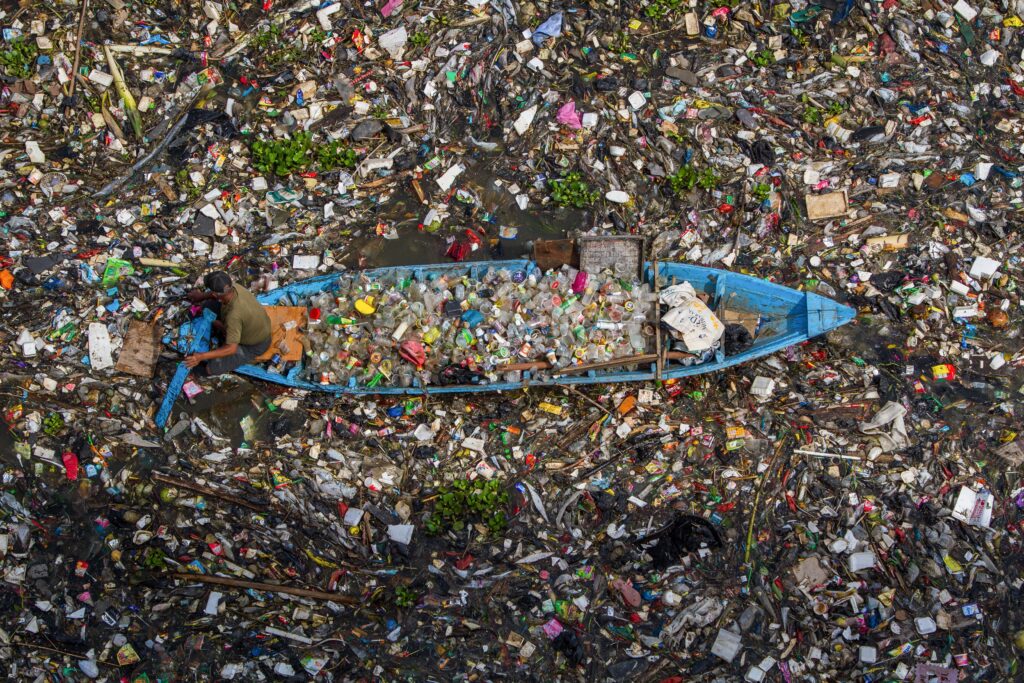The conference – which has over 200 assembled nations – builds on work from previous rounds of negotiation, covering proposals to phase out harmful plastics and chemicals of concern, set product design requirements, and promote sustainable production and consumption.
But WRAP told Letsrecycle that the mood in the room is shaped by a “wide gulf” between those nations pushing for a strong treaty and others favouring voluntary measures.
“There was progress in some areas at INC-5.1,” said Peter Skelton, Senior Strategic Partnerships Manager at WRAP, “however there is a wide gulf in the interests of different national delegations ranging from very pro a global treaty to those who are more resistant and satisfied with voluntary provisions only.”
The previous round of the negotiations (INC-5) – which were originally slated to be the last – ended on 1 December in Busan, South Korea, with stakeholders unable to reach an agreement on a treaty to eliminate plastic pollution.
Earlier this week, The Guardian reported that over 200 lobbyists from the oil, petrochemical and plastics industries are attending, with warnings that these figures aim to be obstructive to the ambition of the meeting.
Still “too early” on key issues
One of the more contentious topics in earlier negotiations was production limits on virgin plastics.
When asked about momentum towards a solution, Skelton commented that “at this stage, it’s too early to say.”
WRAP described both procedural and substantive progress as “slow” but stressed that the coalition of stakeholders pushing for ambition remains strong.
The organisation continues to work closely with partners such as the Ellen MacArthur Foundation, Common Seas, and the Business Coalition for a Global Plastics Treaty – whose recent roundtable statement it supported.
This round of negotiations is set to end on Thursday (14 August 2025).
A vision for a strong treaty
As the conference began, WRAP called for a “strong, legally binding” treaty.
When asked what constitutes a “strong” agreement, WRAP commented that it: “Must be legally binding, addressing the entire lifecycle of plastics with a comprehensive circular economy approach.”
In practical terms, the organisation hopes the treaty will:
- Eliminate unnecessary plastics and prioritise reuse
- Adopt recyclable materials
- Enforce the polluter pays principle
- Channel investment into impacted low-income regions to build infrastructure and skills
- Support a just transition for recycling workers
WRAP also suggested that the treaty should extend beyond packaging to cover microplastics, fishing gear, textiles, and other pollutants.
Prior to INC-5.2, WRAP CEO, Catherine David, attended the government’s plastic pollution treaty roundtable, which stressed the importance that negotiations reach an agreement that includes targets on reducing the production of plastic.
WRAP’s impact on the global plastics treaty
WRAP’s presence at INC-5.2 continues from earlier rounds of negotiations. Having first attended INC-2 in Paris, the organisation has since hosted side events at each session since INC-3.
This week has seen over 100 attendees at the negotiations with representation from WRAP’s Pact Network as well as business and government delegates.
Skelton explained: “Our message is strongly that we have mechanisms that are delivering treaty aligned outcomes which we need to scale.”
While WRAP said it’s “hard to say” its direct influence on the treaty text, it notes that several governments – including Chile, Canada, the UK and South Africa – have referenced Plastics Pact work in their national submissions.
Skelton added: “Plastics Pacts have already played a valuable role in informing the Treaty negotiations and can continue to contribute meaningfully in the lead-up to implementation.”
WRAP suggested that the Pacts can be used to provide insights on roadmap development, highlight areas of growing alignment in the sector, and bring a nuanced lens on how circularity can drive innovation.







Subscribe for free